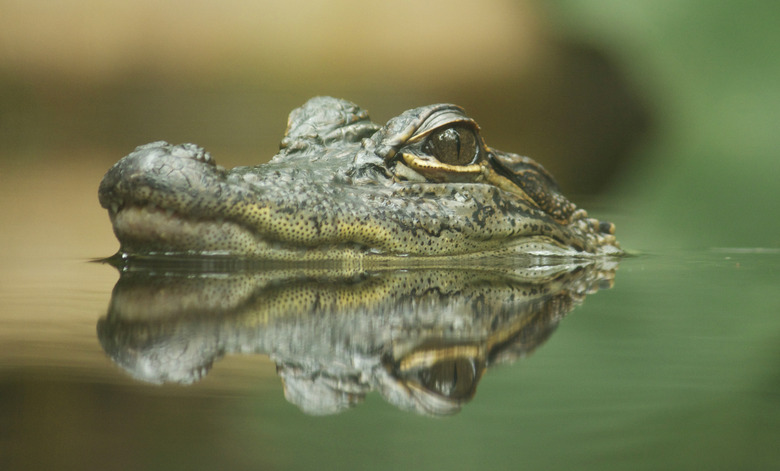Body Parts Of A Crocodile
Crocodiles inhabit rivers, lakes and swamps in tropical areas such as Southeast Asia, Australia, Africa, Central and South America and even in Florida. These reptiles sometimes grow as large as 20 feet long and weigh around a ton.
Head
Head
The crocodile has a long V-shaped snout full of teeth. The fourth tooth on a crocodile's lower jaw is visible over the upper lip in a crocodile, and the tongue of a crocodile, anchored to the bottom of its mouth, cannot move.
Eyes
Eyes
The eyes of a crocodile produce tears but not due to any emotion in the reptile. These tears clean the eyes and keep the growth of bacteria to a minimum.
Legs and Feet
Legs and Feet
While crocodiles have webbed feet, the reptile does not typically use them to help them to swim. However, on land a crocodile can run as quickly as 11 miles an hour for a very short distance on its short legs.
Tail
Tail
The crocodile has the ability to propel itself through the water with its long, powerful tail by whipping it back and forth. It is also useful as a weapon, as the animal will slash at its prey with it to disable it or knock it into the water.
Fun Facts
Fun Facts
The brain of the crocodile is the most advanced of any reptile. The stomach will frequently have stones in it; this is a feature that researchers feel helps the crocodile to digest its food.
Cite This Article
MLA
Lindell, John. "Body Parts Of A Crocodile" sciencing.com, https://www.sciencing.com/body-parts-crocodile-5475688/. 13 March 2018.
APA
Lindell, John. (2018, March 13). Body Parts Of A Crocodile. sciencing.com. Retrieved from https://www.sciencing.com/body-parts-crocodile-5475688/
Chicago
Lindell, John. Body Parts Of A Crocodile last modified March 24, 2022. https://www.sciencing.com/body-parts-crocodile-5475688/
